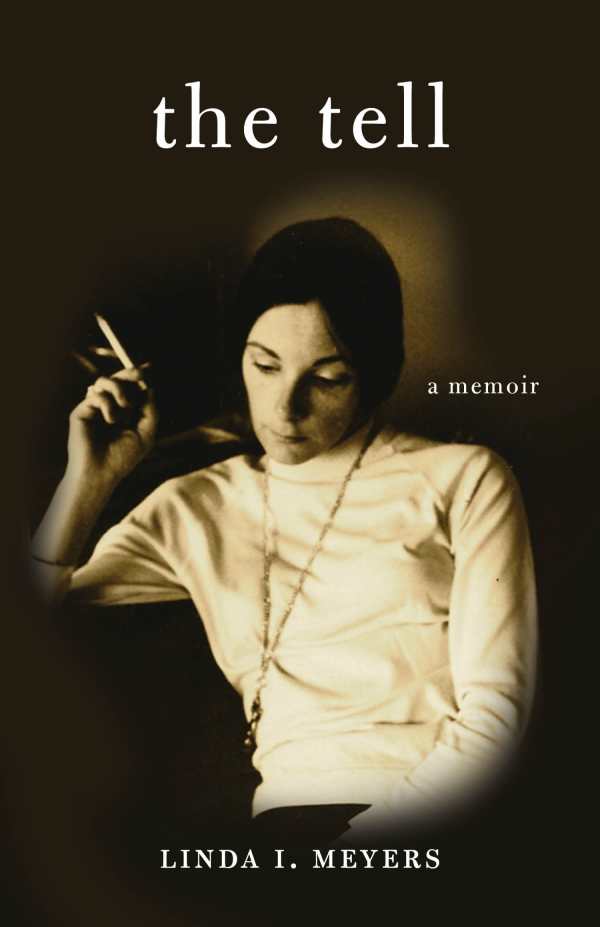The Tell
A Memoir
The day-to-day subtle tensions within relationships, which shift over time, propel the narrative forward.
The ghosts of Linda I. Meyers’s family haunt her memoir, The Tell, in which she searches for hints that reveal the true nature of damaged relationships.
A few early chapters are told in the third person, relating the perspectives of previous generations. While it is difficult at first to discern the relationship between Meyers and the people she writes about in these sections, she always clearly states who they are at the end of the chapter, or supplies labeled photos for reference.
Tiny details make this memoir stand out, from the cigarette her mother so nonchalantly smokes at the bar in which her parents meet to the “deep lines of skepticism” in her grandmother’s forehead. These small observances create distinctive imagery in each essay. Over the span of just a few pages, the author’s grandparents (and others) come alive, as three-dimensional as our own world. Just a sentence or two reveals more about a character than a lesser writer could show in several paragraphs; for instance, Meyers says of her grandfather, “Harry had spent the last fifteen years sitting his own shiva.”
All senses are activated in depictions of events in the lives of Meyers and her family members. The historical atmosphere, when the setting calls for it, is immersive, and when stories are relayed, the problems of a faulty or skewed memory add depth to the narrative rather than detract from it. The best sections of the memoir reveal that children understand much more about their parents than they may be able to communicate: “When my mother is on the phone with Rachel, and she starts twirling her wedding band faster and faster and talking lower and lower, I know it’s a good time to hightail it outside.”
The audience for The Tell is not entirely clear. While the writing is vivid, there is a journal-like feel to some sections, especially when making reference to an included photograph. Meyers’s parents likely wouldn’t enjoy their depictions in some chapters, but this is certainly more than a book written to provide catharsis. Themes of memory, cultural inheritance, and learning from the past run strongly throughout. Much of the book contains very little drama, which makes it difficult to invest in the plight of the people in the stories. The day-to-day subtle tensions within relationships, which shift over time, are what propels the narrative forward.
With beautiful observations of human nature, The Tell serves as an appreciation of the complexity of family.
Reviewed by
Aimee Jodoin
Disclosure: This article is not an endorsement, but a review. The publisher of this book provided free copies of the book and paid a small fee to have their book reviewed by a professional reviewer. Foreword Reviews and Clarion Reviews make no guarantee that the publisher will receive a positive review. Foreword Magazine, Inc. is disclosing this in accordance with the Federal Trade Commission’s 16 CFR, Part 255.

